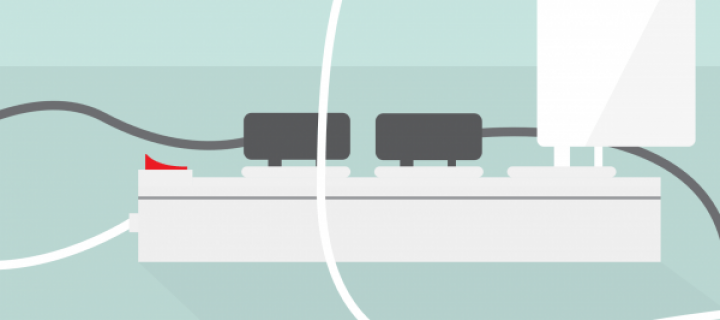We use electricity in almost every aspect of our daily lives, so it’s little wonder that electrical appliances are one of the leading sources of accidental fires. If you encounter an electrical fire, it’s vital to act quickly; however, many people are unaware of how best to extinguish fires caused by electricity. In extreme circumstances, this knowledge could be the difference between life and death.
Luckily, the team at TVF (UK) Limited is here to help you understand electrical fires and how best to handle them.
How do you put out an electrical fire?
In the event of an electrical fire, it’s important to act quickly. The way in which you extinguish an electrical fire differs from other fires, so it’s vital you’re aware of the process:
If it’s safe to do so, cut off the source of the electricity. This deprivesthe fire of fuel and prevents electrocution for anyone attempting to tackle the blaze.
If the fire is small enough to bring under control, smother the flame with a fire blanket or any other fire-resistant material. However, you should never put yourself at risk, and larger fires will require the use of an extinguisher or help from emergency services.
Check you have the correct fire extinguisher and discharge it if suitable. Only Class C Fire extinguishers should ever be used on an electrical fire. These are also referred to as CO2 extinguishers and are easily identifiable by their black band. They differ in appearance from other fire extinguishers due to their hard horn and lack of a pressure gauge. The canister contains compressed CO2 gas which is expelled through the horn and starves the fire of oxygen. This gas is non-conducive, so minimises the risk of electrocution if used on live appliances.
What causes an electrical fire?
An electrical fire typically occurs when the electrical current is disrupted, causing a fault. There can be numerous causes, so it’s crucial to remain vigilant of potential hazards. Some of the top causes of electrical fires are:
- Defective sockets
- Extension leads
- Light fixtures
- Portable heaters
- Faulty and outdated appliances
What NOT to use on an electrical fire
From an early age, it’s drilled into us that water is the easiest way to put out a fire. However, when faced with an electrical fire, you should never attempt to put it out with water; this conducts the electricity and could cause the fire to spread, as well as potentially electrocuting those in the vicinity.
If you’re caught off guard by a fire, you may be tempted to grab the nearest extinguisher and hope for the best. However, you should never use foam or powder-based extinguishers on an electrical fire, as these are also conductors and may simply make matters worse.
How to prevent an electrical fire
Most of the time, electrical fires are preventable. If you’re aware of the hazards and take steps to avoid them, a tragedy could be easily averted. Some simple ways to prevent an electrical fire are:
- Don’t overload electrical outlets. If your socket exceeds the maximum current rating, it could cause the plug to overheat.
- Ensure all electrical equipment is PAT tested by a professional. This process identifies any defects and certifies all appliances as safe to use.
- Before purchasing any electrical apparatus, you should check they have the UKCA symbol on them. This signals that the device is compliant with all British regulations.
- Immediately dispose of any plugs or cables that are damaged or frayed. If the live wire is exposed, the fire risk is dramatically increased.
- Only use light bulbs that have the recommended wattage; any higher and the light socket, insulation and wires could be melted.
- If portable heaters are in use, make certain that they are equipped with a safety mechanism that shuts them off when tipped over.
TVF (UK) Limited is your leading provider for all things fire safety. We recognise the importance of understanding electrical fires; that’s why we provide in-depth fire safety training. Our knowledgeable professionals also offer fire risk assessments, where we will identify potential hazards and advise you on ways to minimise the risk of an electrical fire.
We operate throughout High Wycombe, Watford, Slough and the surrounding areas – get in touch with our friendly team for additional information or to schedule your fire safety training session.













